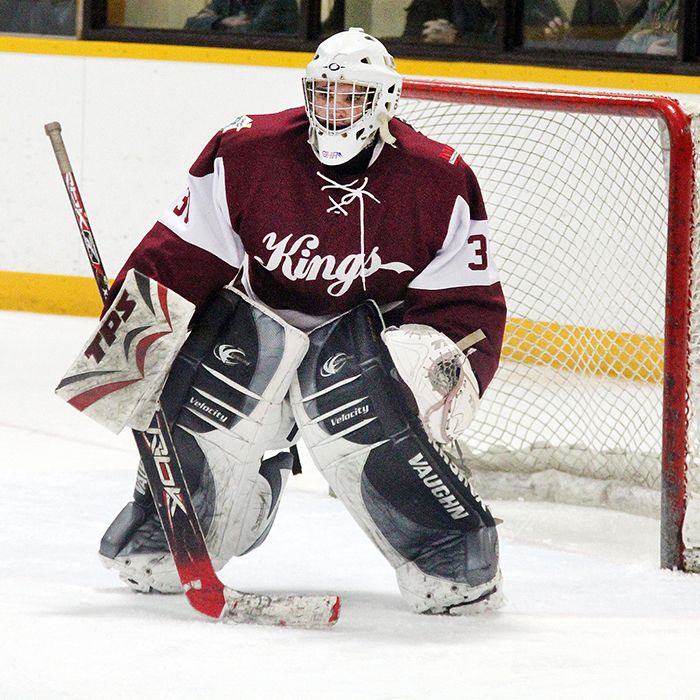
When an athlete plays his or her final competitive game, it forces them to look inward, to evaluate who they are, and what role sport played in shaping their identity.
In particular, for hockey players in Canada, their sport is tied both to their personal and cultural identity. Their final games, whether at the minor or junior level, are difficult, and bring with them mixed emotions.
“In my final games, it really hit me that this was the end of my junior days,” said former Blenheim Blades star Tyler Clarke, who played his last season of Jr. C hockey in 2012-2013. “When the final buzzer rang on my last game, it hit me like a ton of bricks and it was very difficult to say goodbye to all the boys on the team. We were more like family in my final year.”
Riverview Bingo Palace 02 from Chatham Voice on Vimeo.
“I tried to make sure to have a good, solid game and try to take everything in while the game was going on,” said Brent Paxton, of his final junior hockey games this year with the Dresden Kings, who were eliminated by the Essex 73s in the opening round of playoffs. “After the game, I stayed as long as possible in the dressing room knowing it was one of the last times I would be there.”
These athletes spend years training and competing; it’s the spot they make friends, and learn to socialize with teammates and coaches. Young athletes learn valuable skills they will transfer into the working world, and for many, youth sports are interconnected with their identity, and in a large part, help shape their sense of self.
“Playing sports has made me who I am today,” explained Paxton. “From playing high school basketball or hockey, it has given me many skills like teamwork, which I apply to real life when interacting with other people.”
“Playing sports played a huge role in forming my identity with friends and peers,” said Clarke, who in his final season with Blenheim, scored a goal that landed on TSN’s top 10 plays of the year. “It got me to socialize and move out of my comfort zone with many people I would’ve probably not got a chance to if I didn’t play any sports. Many of my close friendships developed through playing hockey.”
For Paxton and Clarke, letting go of the sport entirely won’t happen just yet, despite their playing days being over. Both plan to stay connected through coaching or other avenues, and continue to nurture the part of their identity that was carved through sport.
“Coaching would be something I would like to start doing,” said Paxton.
“Now that I’m done junior hockey, I decided to take a year away from the rink, but that didn’t last too long,” said Clarke ” I got a call from an old coach halfway through the season who needed help with a Jr. C team close to London, where I reside now. I couldn’t resist the offer. I got a lick of the coaching side of things and really enjoyed the experience. It always feels good to give back any way you can.”
Even with plans to stay involved in hockey, the ache for Clarke and Paxton, of their playing careers ending and being forced to move into a new stage in life, will take a while to sink in.
“I think it’ll take me a couple years to get over the fact I probably won’t ever play competitive hockey again,” said Paxton. “It’s just starting to sink in now.”






